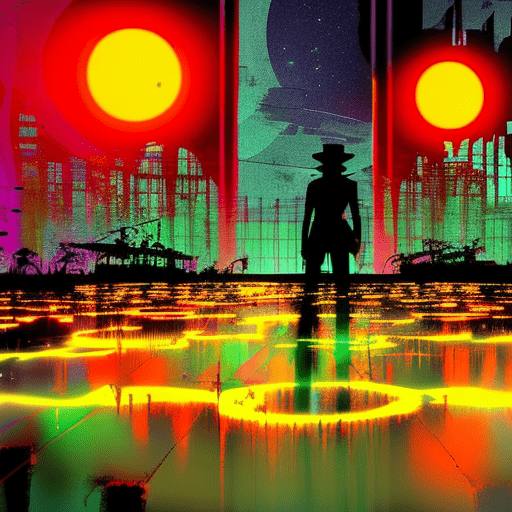One-line Summary:
A Clockwork Orange is a dystopian novel that explores the dark side of human nature through the eyes of a violent teenager in a futuristic society.
The World of Ultra-Violence
In the not-so-distant future, A Clockwork Orange takes place in a dystopian society where violence and crime run rampant. The story follows the protagonist, Alex, a charismatic and intelligent teenager who leads a gang of delinquents known as the “droogs.” Together, they indulge in a life of “ultra-violence,” committing heinous acts of assault, rape, and murder.
The Ludovico Technique: A Cure or a Curse?
After a series of violent crimes, Alex is arrested and sentenced to prison. Seeking a way to rehabilitate criminals, the government offers him a chance at redemption through the controversial Ludovico Technique. This experimental treatment aims to condition Alex to associate violence with extreme nausea, effectively “curing” him of his criminal tendencies. The procedure involves strapping him to a chair, forcing his eyes open, and subjecting him to a barrage of violent images and sounds while administering a nausea-inducing drug.
The Ludovico Technique, however, raises ethical questions about the nature of free will and the limits of punishment. While it appears to have successfully transformed Alex into a docile and non-violent individual, it also strips him of his ability to make choices. He becomes a mere puppet, unable to defend himself or others when faced with danger. The treatment raises the question of whether it is better to be a “clockwork orange,” mechanically conditioned to behave, or to retain one’s free will, even if it means embracing violence.
The Loss of Identity and the Power of Choice
Throughout the novel, the theme of identity is explored as Alex grapples with his newfound inability to act on his violent impulses. Stripped of his agency, he becomes a hollow shell, devoid of his former personality. The loss of his individuality is further emphasized by the recurring motif of music, which Alex once loved but now finds unbearable due to its association with the Ludovico Technique.
As the story progresses, Alex’s fate takes a turn when he becomes a victim of his past actions. Betrayed by his former gang members, he is left defenseless and at the mercy of those he once victimized. This experience forces him to confront the consequences of his actions and raises the question of whether true redemption is possible.
Ultimately, A Clockwork Orange explores the complex interplay between good and evil, the power of choice, and the consequences of society’s attempts to control human behavior. It challenges readers to consider the importance of individual agency and the dangers of sacrificing personal freedom in the pursuit of a crime-free society.
Key Takeaways:
- Violence and crime in a dystopian society.
- The controversial Ludovico Technique and its impact on free will.
- The loss of identity and the power of choice.
- The consequences of society’s attempts to control human behavior.
“Does God want goodness or the choice of goodness? Is a man who chooses the bad perhaps in some way better than a man who has the good imposed upon him?”
– Anthony Burgess, A Clockwork Orange
In conclusion, A Clockwork Orange delves into the dark depths of human nature, exploring the themes of violence, free will, and the consequences of societal control. It challenges readers to question the nature of good and evil, and the importance of individual agency in a world that seeks to suppress it.












